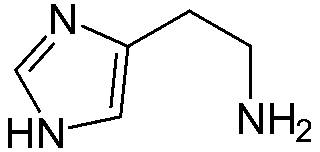Histamine intolerance (histaminosis) is the intolerance of histamine that is ingested with food. This intolerance exists as a congenital disorder, but also as an acquired consequence of diseases of the gastrointestinal tract or as a result of medications or toxins. After consuming food rich in histamine, various, often non-specific symptoms occur, which are often similar to allergic reactions.

Possible symptoms after eating foods rich in histamine include:
- Skin redness, hives, eczema, itching
- Headache, feeling hot, migraine, dizziness
- narrowed or runny nose, difficulty breathing, bronchial asthma, sore throat
- Gas (flatulence), diarrhea, constipation, nausea/vomiting, abdominal pain, stomach ache, heartburn
- High blood pressure, palpitations, cardiac arrhythmias, low blood pressure
- Menstrual problems, cystitis, urethritis and irritation of the mucous membranes of the female genitals
- Water retention, bone marrow edema, joint pain
- Exhaustion, seasickness, tiredness, sleep disorders
- Confusion, nervousness, depressive moods
Potentially incompatible foods
Among other things:
- Sauerkraut
- Tomatoes (including ketchup and pizza)
- Strawberries
- Avocado
- Spinach
Source among others: https://de.wikipedia.org/wiki/Histamine-Intolerance
Context:
ID: 221




